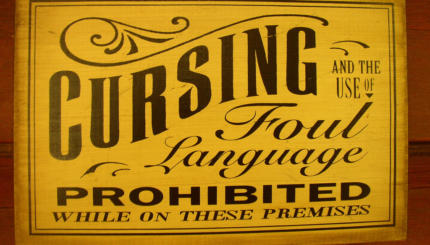We Jews are great at gathering together in times of crisis, but how often do we get together to celebrate joy? This was the illuminating challenge a mohel offered at a bris I recently attended. And it rings true. We are doing a tremendous job of rallying support for Israel solidarity gatherings during Operation Protective Edge. Jews of many religious stripes make a point to show up to services on the High Holy Days, where we sit for hours in solemn reflection, penitence, and apprehension. Perhaps largely due to the recurrence of tragedy and persecution in Jewish history, we have learned to do sad well.
But where are Jewish audiences on Simhat Torah, a day dedicated to rejoicing at arguably the most important feature of Judaism—the ongoing engagement with the Bible? How often do we get together with friends or relatives to celebrate milestones and accomplishments? As I plan a birthday party for my daughter, I wonder when it became fashionable to stop having birthday celebrations as an adult. As I begin a new position this summer, I wonder why we only commemorate the end of past jobs and not—Linked In notifications aside—rejoice communally at new ones.
I write this post with Robin Williams’ death weighing heavily on my mind. Though I never met him, I feel like Mr. Williams was a big part of my life. As a Gen Xer, I grew up with
Mork and Mindy
,
Comic Relief
, HBO specials, Dead Poet’s Society, and
Good Morning Vietnam
(at the risk of dating myself, if you happened to miss the 80s, I highly recommend you download the above). His talent was so breathtaking, his wit so lightning-fast, and yet so heartfelt and genuine, that I often found myself laughing so hard I didn’t realize I was crying as well. His comedic virtuosity was “manic, uninhibited, seemingly barreling along on an arbitrary stream of consciousness but actually arranged carefully around subject categories: drugs, politics, sex, marriage, fatherhood, among the many.” Later, he managed to play off of this exuberant, hurricane-in-a-bottle ability by taking on subdued roles. As the New York Times film critic A. O. Scott put it in this obituary, “Watching him acting in earnest, you could not help but be aware of the exuberance, the mischief, that was being held in check, and you couldn’t help but wonder when, how or if it would burst out. That you knew what he was capable of made his feats of self-control all the more exciting.”
WIlliams’ ability to mine comedy from tragedy, to inspire and encourage, was not only his signature talent but also his biography. He was plagued by addiction to cocaine and alcohol, watching his close friend—and fellow comedic giant—John Belushi die of an overdose. He also was thought to suffer from depression and bipolar disorder, which might well explain his apparent suicide. But Williams somehow refused to let his mental health, marital, and other problems obfuscate his prodigious talent. He used his personal demons as fuel for his stand-up routines, showing the courage to discuss mental illness and addiction when few comedians did. He helped raise millions of dollars in his charity work. And he showed that a comic doesn’t have to demean or insult others to bring a smile or a laugh.
So today, despite the tenuous cease-fire in Israel/Gaza, despite the general mayhem that continues to unfold in the Middle East, despite the ebola outbreak in Africa, despite the immigration crisis in America, despite the global crisis that is global warming, and on and on, I am going to take time out to listen to Robin Williams, zichrono livracha (may his memory be for a blessing). I am going to gather my family together tonight and we are going to laugh, heartily and with gusto. And in his honor, I am going to dedicate myself to seeking opportunities to celebrate happiness and gratitude in the coming year. I hope you will join me.


